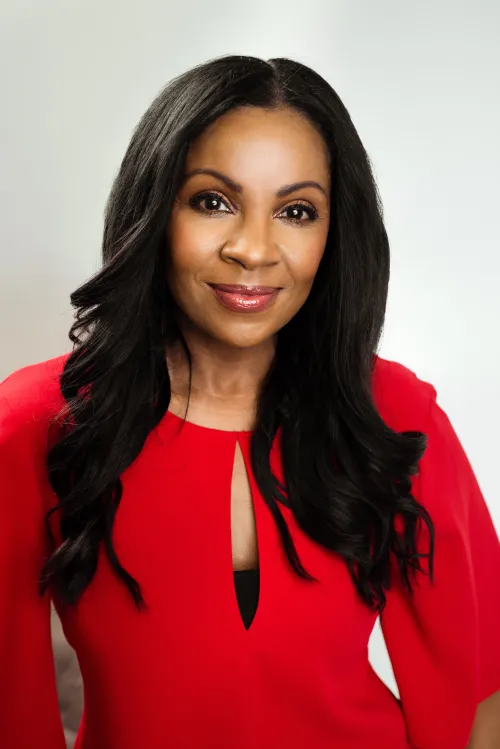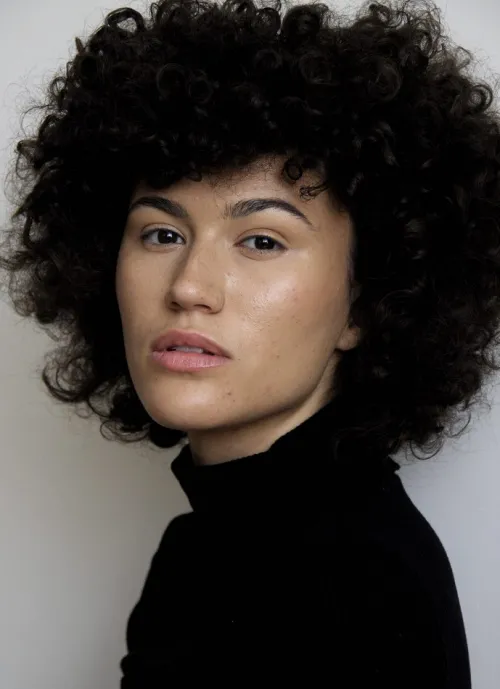
Journalist and artist Rosel Jackson Stern speaks to Relate’s President Anjula Mutanda, a relationship psychologist, psychotherapist, broadcaster and author, about identity, belonging and how therapists can better support people from Black, Asian and communities of colour.
Conversations about race always exhaust me. If they’re with white people, they labour under the more or less silent expectation to rehabilitate them into some sort of racial understanding. If they’re with other people of colour, I always find that there are more interesting things to talk about. That’s why I’m instantly relieved when Relate president, broadcaster and psychotherapist Anjula Mutanda generously tells me how she’s come into her identity.
Until adulthood, Anjula never felt like she belonged. As a Black woman being ostracised from the Indian side of her family, the importance of identity, belonging and racial justice isn’t lost on her. “For a long time, I projected to the world that I did not quite fit in. It was an identity I had been given and believed but there’s a real person under that.” It’s the real person that shines through when I speak to Anjula over video call from my small bedroom in Sydney, Australia.
Even through video call, she radiates the joy of someone comfortable in their skin. “It’s a long-term project but I am my authentic self now”. From jump, it becomes clear that how you feel about yourself is the rudder that steers conversations about race.


How to find your sense of self
Chatting to Anjula helps me put together something that I’d never articulated before: my best relationships with white people are ones where they have made peace with, or at least begun to accept their racial identities. It alleviates me of helping them feel better about being white or the realities of white supremacy. Anjula describes meeting her husband, who is about as white as it gets, as a moment she could be entirely herself. “He just fully accepted who I was and that was huge for me.” In part, that acceptance was down to being comfortable in his own skin. “He’s a true English man,” Anjula chuckles, “he loves folk music and spending time in the country — he is who he is and he loves who he is.”
Owning who you are and working to become ok it alleviates others from constantly having to reaffirm or tip-toe around your identity. As people of colour, particularly black people, we’re taught to constantly anticipate the projections and harm white people might throw at us as part of a wider system of oppression. “If you are constantly hyper-vigilant, and hyper-aware of how you're going to be treated, there's a dysregulation that happens” Anjula states, “It means you can never just be at ease.”
Ask for help to get there
After the death of George Floyd catalysed the latest push toward Black liberation, Anjula’s therapeutic and clinical practice changed. She had an influx of clients who knew that they wanted a Black therapist, who wanted a therapist that would acknowledge and/or share their experience of white supremacy and racism. “We, as therapists, have had to up our game. That’s a good thing because it’s about time.” She had to re-evaluate her Eurocentric training as a psychotherapist and examine what practices allowed her to help Black and minority clients better. “People would tell me: “I’m fine, it’s the external bullshit I need to talk about”. Therapy that acknowledges that how the world perceives you can be taxing and detrimental to your mental health is crucial to long term healing.
On the flip side, Anjula has seen clients who want to work on their bias: “I’ve had clients tell me: “I’m racist. I don’t know why and I want to work on that” and I love those opportunities because they are so rich.” Anjula said. Now, I am by no means recommending that white people should reach out to Black therapists in particular to work out their racism but entrusting a paid, qualified professional to work out your stuff is admirable. It takes a certain level of humility and courage to recognise a learned behaviour and endeavour to work on it. When white people can do this, it builds towards a world where people of colour, and Black people specifically, don’t have to brace themselves for the racism they know affects them.
Just be a person
Ultimately, approaching friends, co-workers and family members as people with their own individual histories and experience fosters trust. It sounds inane but between racist micro and macro aggressions, this clearly doesn’t register for everyone. “If you don’t spend time connecting with your core, it’s going to be very difficult to connect with other people because you’ll cause harm,” Anjula explains. Because Black people are human, showing up for yourself by uncovering your wounding and ideas about race helps build racial equality. Taking the time to worry less about saying the wrong thing to address how you feel about your own racial identity helps you resist projecting that stuff onto others.
As our conversation comes to a close, Anjula recounts a trip to Peru and Bolivia where her heritage and existence wasn’t a point of contention. “I walked down the street and nobody looked at me” she laughs, “I’d never felt so at home and I could not understand why.” Her memories remind me of a similar feeling I had on a trip to Cape Verde with my mother. It was the feeling of complete belonging, of relaxing into ourselves so that we could experience the fullness of our personalities and rich internal worlds. Ultimately, that is the best offering we can give to the world.
Get help
Resources to support your mental health as a Black person. Please consider donating to these organisation if possible:
This blog was authored by Rosel Jackson Stern, a journalist and artist whose work primarily covers culture, politics and art.